Submission Deadline
28 February 2026
Judging
Date
24 & 25 March 2026
Winners Announcement
22 April 2026
28 February 2026
24 & 25 March 2026
22 April 2026
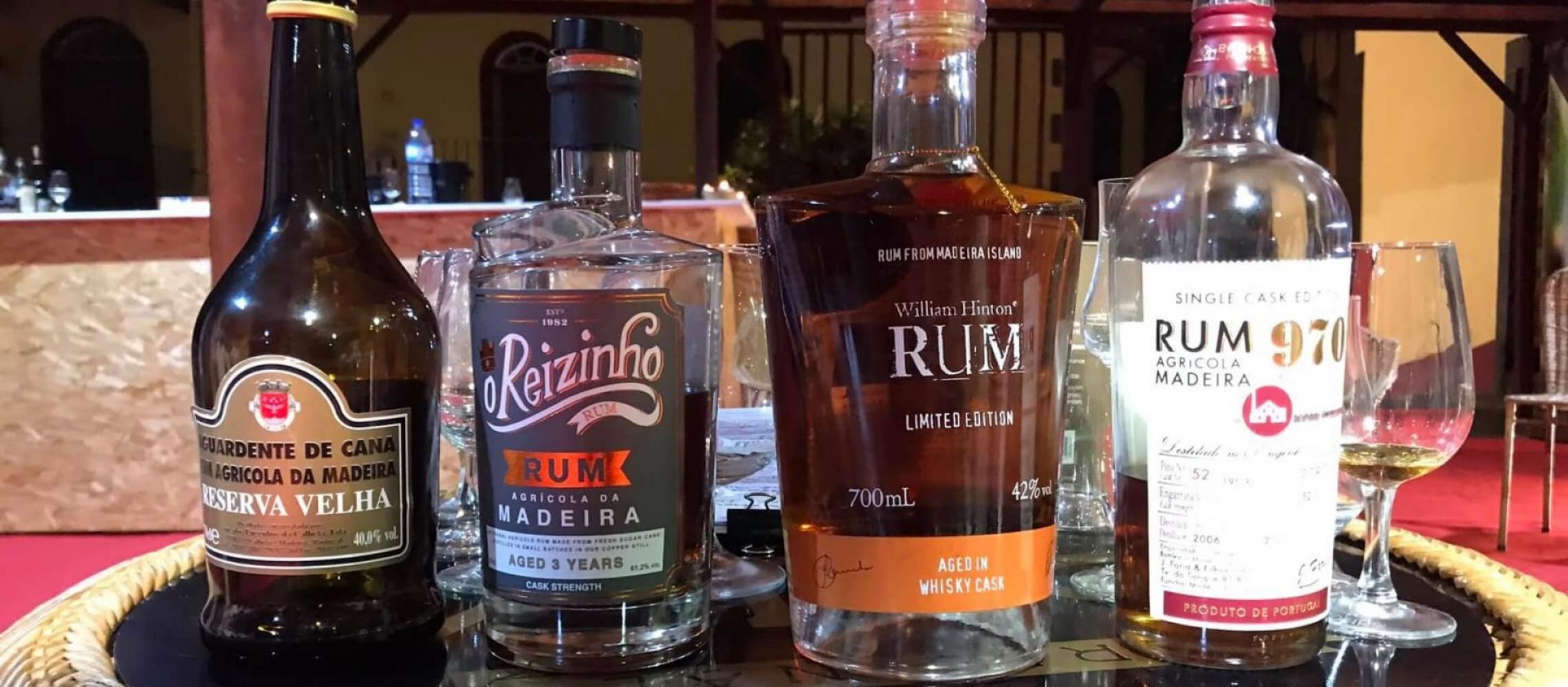
In the world of spirits, where history, craftsmanship, and terroir converge, Madeira Agricole Rum stands as an exceptional and often underappreciated gem. Emerging from the sun-kissed volcanic slopes of Madeira, this rum reflects centuries of sugarcane cultivation and artisanal production methods that have endured the test of time. What truly sets Madeira Agricole Rum apart is the harmony between its tropical island terroir and the painstaking care involved in its production. Distilled from fresh sugarcane juice, this rum offers a fresh, vegetal profile that is as rich in character as the island itself. Today, this handcrafted spirit is gaining international recognition, captivating connoisseurs with its unique complexity and sense of place.
In the vast landscape of distilled spirits, Madeira Agricole Rum stands out as a unique and original spirit, captivating the senses and offering a rich sensory experience. This outstanding rum comes from the paradisiacal archipelago of Madeira and is firmly ingrained in the region's history, culture, and agricultural traditions.
One of the factors contributing to the uniqueness of Madeira Agricole Rum is the influence of the island's terroir. The subtropical climate, rich volcanic soils, and the proximity to the ocean all play a role in shaping the character of the rum. Distillers often age their spirits in oak barrels, allowing them to absorb the nuances of the wood and the surrounding environment. The result is a rum that reflects the essence of Madeira – a harmonious blend of tropical vibrancy and maritime influences.
So, Madeira Agricole Rum is, in fact, the result of the perfect combination of natural and human factors, combined with accumulated know-how over the centuries, which give this product unique and unmistakable characteristics. A unique set of factors ranging from geography, geology, climatic conditions in the region, the varieties of sugar cane used in the production of Madeira Rum, the production, and aging method, and the accumulated know-how over centuries, gives rise to a product that is easily differentiated in terms of sensorial terms.
Natural Madeira Rum differs from other products in the same category due to its aromatic intensity and complexity, and at the olfactory level, it is less neutral than its peers. It is distinguished by typical tropicality, freshness, minerality, and persistence.
Aged Madeira Rum is distinguished by its high potential for evolution, resulting in a unique and singular style. Full-bodied and possessing an acidic freshness conferred by the region's terroir, it presents a wide range of aromas and flavors that it acquires with oxidative aging. It is distinguished by its structure (full-bodied), aromatic complexity, delicacy, elegance of flavor, and high persistence.
We have been assisting in a great increase in Madeira Rum commercialization in the last 3 to 4 years. Greater contacts abroad, due to participating in national and international rum festivals, and we also believe the “ambassadors” that have been invited to visit Madeira in the last years have helped us to spread the news about Madeira Rum, especially during the Madeira Rum Festival. Taking into account the quality of Madeira Agricole Rum, we believe that this growth will last over time.
Generally, we think that the demand for Madeira Rum will continue to increase as the island becomes more renowned for its Rum production and as the distribution network reaches out to other markets. We believe that aging will become increasingly important, as it adds interest, diversity, and the possibility of different forms of consumption.
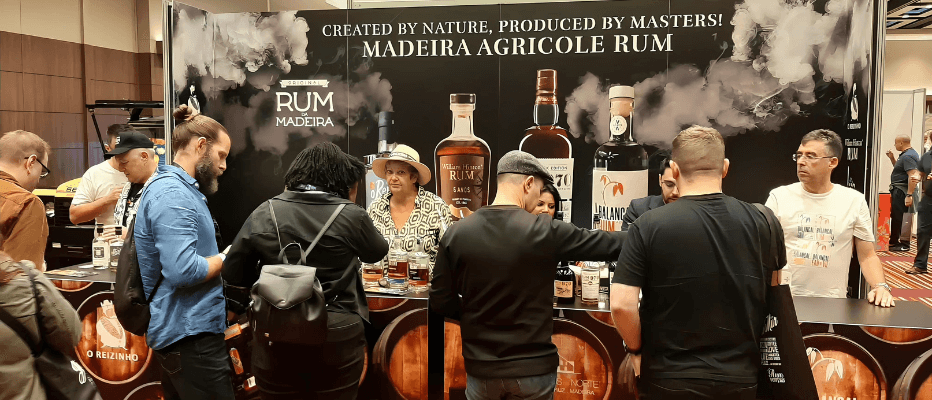
Image: Madeira Agricole Rum - UK Rumfest 2023
Madeira's rum production is strongly connected to the cultivation of sugarcane, which has been farmed on the island for centuries. Madeira's unique environment presents challenges and opportunities for sugarcane farmers and rum producers, influencing the quality, character, and sustainability of the island's rum business.
The production of this raw material of the Madeira Rum is strongly dependent on manpower (mostly family-based), not using any kind of mechanization, not only to allow the maximum use of natural resources, including agricultural area available but also because of the difficulties created by the steep slopes of the land. The need for manual labor due to the terrain makes sugarcane farming more expensive and less efficient compared to other regions where mechanized farming is possible. This increases production costs, which can be a challenge for farmers who operate on narrow margins.
The cultivation is done quite differently from that of the other producing areas. It is done on small holdings, with a very low degree of mechanization. Due to this, the attention paid to the crop is more careful, and this provides higher productivity, which can reach 120 tons/ha.
Currently, the sugar cane is planted in small farms, usually fragmented into 5 – 6 plots, (normally the total area of farms does not exceed 5,000 m2), and occupies a total area of 172 ha, which corresponds to a production of about 10.000t, destined to the production of Agricole Rum and sugar cane honey.
The challenges of cultivating on Madeira's steep hills, along with the tiny scale of production, result in a special and exclusive rum. This limited availability can be marketed as a unique selling advantage, attracting collectors and enthusiasts looking for rare spirits.
Madeira's unique terroir, which includes volcanic soils and different microclimates, contributes to the rum's distinct flavor profile. The challenges of cultivating sugarcane on the island result in a high-quality, handcrafted product that distinguishes out in the worldwide rum market. This distinguishing feature provides an opportunity to offer Madeira rum as a luxury product, appealing to customers who value craftsmanship and geographical individuality.
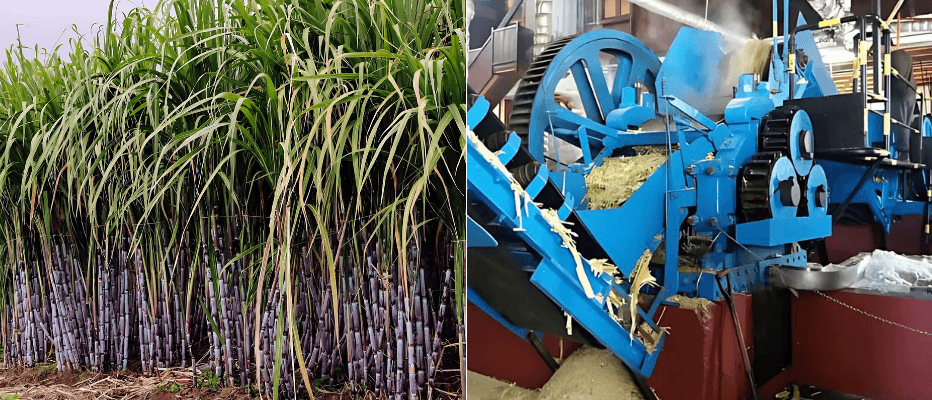
Image: (Left) Sugarcane farming & (Right) The pressing of sugarcane to extract the juice; Source: Rum da Madeira
In recent years, as a result of a challenge launched by IVBAM through the modernization of the legislation that regulates the production and trade of Madeira Rum, there has been a strong focus on aged rums, which are essentially divided into two distinct categories:
- rums with indication of age (3 years old, 6 years old, 9 years old, 12 years old, etc.);
- rums with an indication of the year of production.
Alongside these two types of products, there has also been a significant increase in the number of “cask strength” batches, with the characteristics of the product being maintained exactly as they were in the cask.
These have undoubtedly been winning bets, not only thanks to a careful presentation, with extremely appealing labeling, but especially due to the quality of the products obtained, combining a good image of the product with an excellent organoleptic quality of its content, also achieved with this, a product with greater added value for the region's economy.
Some of the companies made large investments in the acquisition of barrels, increasing their capacity in order to be able to age Madeira agricultural rum for more years. – We believe there will be more stock of aged Rum.
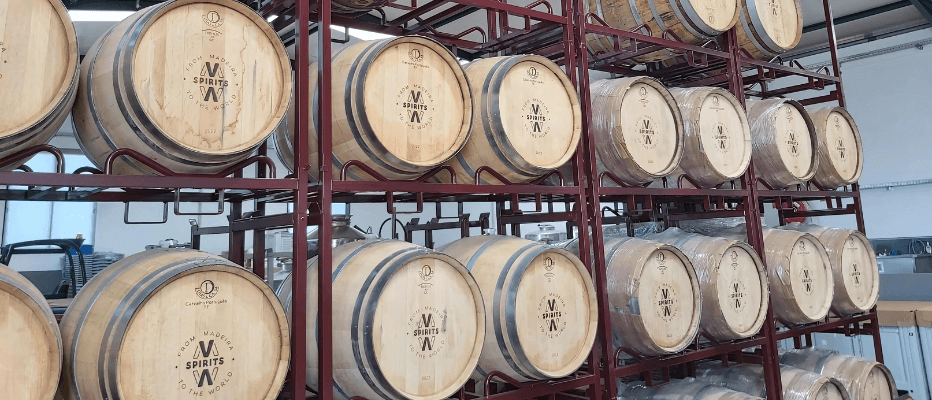
Image: Oak wood casks - The aging of Madeira Rum can only be done in oakwood casks for a minimum of three years.
Madeira Rum is one of the emblematic products of the Autonomous Region of Madeira. Produced since the 19th century, the demand for Madeira Rum has increased significantly, due to its unique characteristics. The fact that it is an agricultural Rum makes it even more special, as there are few regions, in the world, that produce this product worldwide.
When introducing Madeira Rum to worldwide customers, it is critical to stress many essential aspects of its identity that set it apart from other rums and emphasize its distinguishing characteristics. Madeira Rum is made from fresh sugarcane juice rather than molasses, distinguishing it from most other rums. It is an agricole rum and produces a spirit with a brighter, fresh, and vegetal flavor profile while retaining the natural essence of sugarcane. It is frequently produced in small batches using traditional, artisanal processes which may appeal to consumers who value artistry and authenticity in their spirits. Madeira has a long history of sugarcane cultivation and rum production, dating back to the 15th century. Communicating this heritage helps position Madeira Rum as a product with deep historical significance and cultural importance.
The sugarcane used in Madeira Rum is grown in rich volcanic soil that is peculiar to the island. This soil, together with Madeira's diverse microclimates, lends to the rum's unique minerality and complexity. Highlighting the concept of "terroir" can assist consumers in comprehending how the island's environment influences the flavor of the rum.
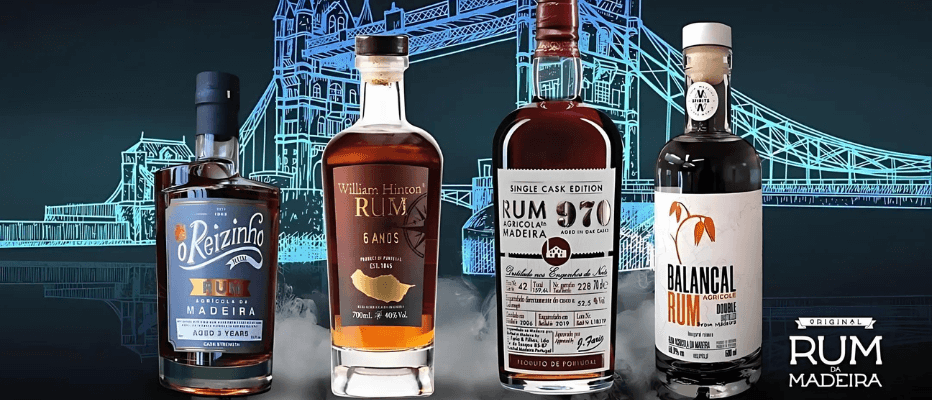
Image: Rum from four of Madeira’s producers: Engenhos do Norte, Reizinho, William Hinton, and Vinha Alta (Balancal).
So, Madeira Rum is the result of a perfect combination of natural and human forces, which give this product distinct and unmistakable characteristics. A unique set of factors ranging from geography, geology, the region's climatic conditions, the varieties of sugar cane used in the production of "Madeira Rum," the production and aging method, and the accumulated know-how over centuries result in a product that easily differentiates itself seasonally.
With its Protected Geographical Indication “Rum from Madeira”, it stands as a distinguished category, blending geographical authenticity with a rich cultural heritage.
[[relatedPurchasesItems-63]]
As Madeira Agricole Rum gains prominence on the global stage, it carries with it a heritage deeply rooted in the island's agricultural and cultural legacy. From the volcanic soils that nourish its sugarcane to the artisanal methods that shape its distinct flavor, this rum is a true testament to the artistry and dedication of its producers. Whether savored neat or as a refined base in cocktails, Madeira rum is carving out a space for itself in the competitive world of premium spirits. Its growing recognition is not just a nod to its uniqueness but a celebration of the island’s ability to balance tradition with innovation, making Madeira Agricole Rum a spirit that transcends time and place.
In conversation with Malvika Patel, Editor and VP, Beverage Trade Network
Also Read:
Aging to Perfection: How Madeira Wine Achieves Its Distinctive Flavor
8 Best Rums for the Perfect Mojito
Premiere Rums from the Bartender Spirits Awards 2024 Every Bartender Should Have
Show your spirits where it matters. Get your products tasted by top bartenders, buyers and experts at the London Competitions — enter now.